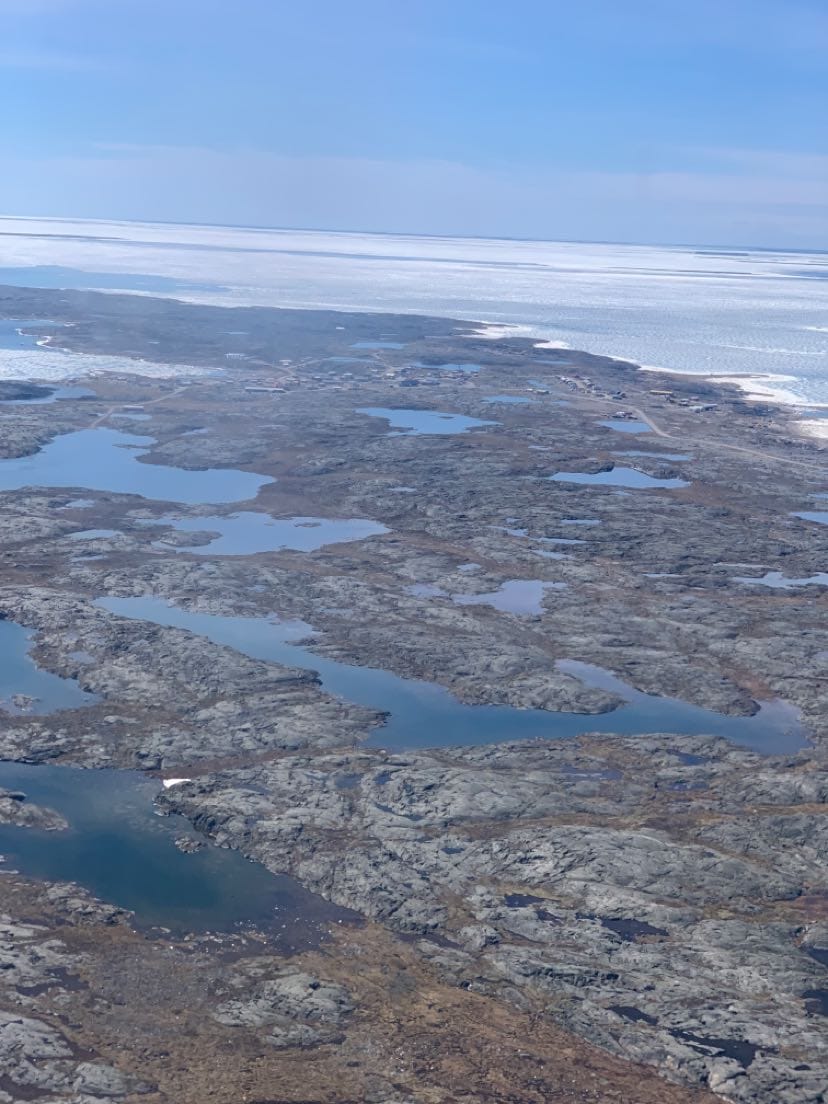The Arctic Adventurer
This is an interview I’ve conducted with a friend who is a plumber working in the Canadian territory of Nunavut. Most people never go to the Territories let alone work there. I sat down with Jeff to give you some perspective of life in the Arctic that I’m sure is quite foreign to your eyes and ears. Many people go to Yukon which has been described as “North Vancouver” and I have family who have spent years in Yellowknife (in the Northwest Territories), but Jeff moved to Nunavut—A territory that’s almost double the size of all the Nordic countries with only about 40,000 people in total.
How are you, Jeff? So, you are in your late twenties with lots of tradesman experience mostly throughout Atlantic Canada—few people venture that far North if they don’t have a reason. There are many people who love the wilderness of Alaska but Nunavut is a different animal.
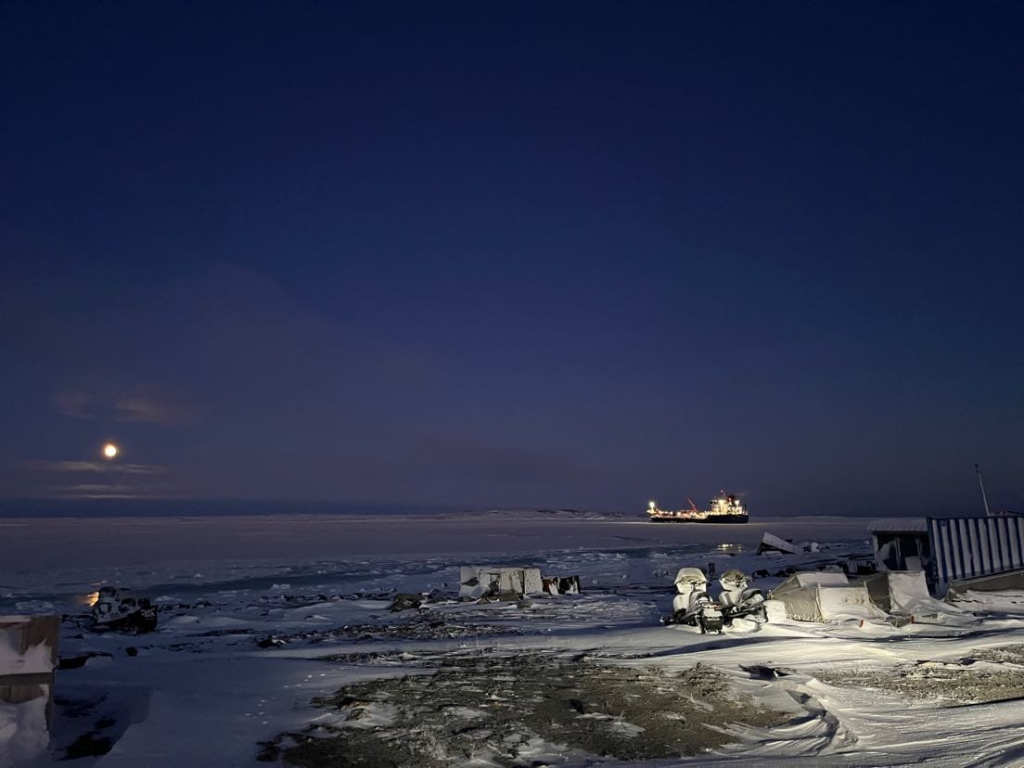
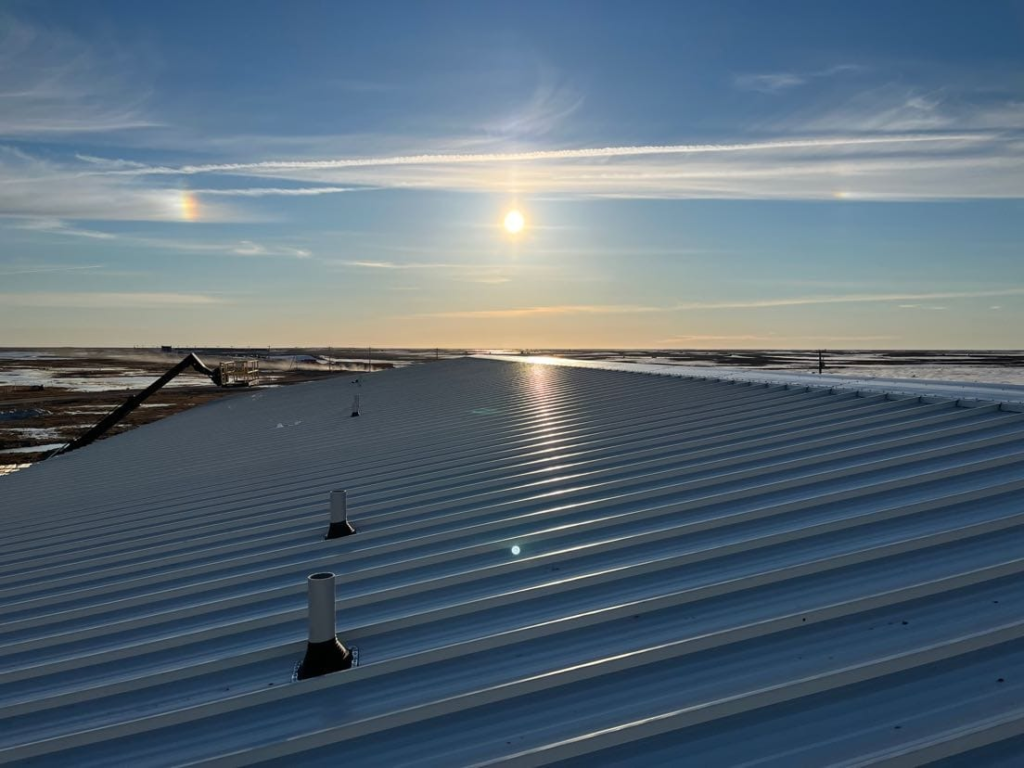
1) Most people don’t know Canada has territories let alone head there for work (physical work!). What made you leave rainy Nova Scotia to join ice-covered North?
Jeff: Good, thanks! In short, A friend of mine was already there and he knew that they were looking for people for work. We casually chatted about it and after looking at the offer, the money was too good to pass up. I thought it would be a cool opportunity to see places I wouldn’t normally get to see, especially as I get older.
2. Besides the wage, are there tax advantages by making the move to work there? What else motivates people to move to the territories?
Jeff: There is a tax benefit available for working in Nunavut, it works out to be about 7-10 Canadian dollars a day if you work a certain number of days. Trying to figure Canadian taxes is not my forté. But the majority of people moving there is for work purposes or they very big into hunting or fishing and fell in love with the Arctic. There’s also a select group of people who move there up for other purposes that I won’t say here, nothing illegal I don’t believe, but not the best intentions.
3. Oh man, you have me curious now. Is it depressing being far away from home? or being out in the cold with few people nearby? I’ve read on a forum that many end up cheating on their wives or end up in litigious problems, is that true?
Jeff: Being on the road is tough. (Find OnTheBall Travels), being that far away from family and friends is never easy. Cold is a different feeling but manageable, we’re prepared for it up there.
And your second question, I’ve heard about something like that.
4) Okay… you’ll leave it at that. Keeping the interview PG-13 I see.
Have you heard of individuals going there for jobs in mining? I believe there’s some gold deposits there as well as diamond mines. A Chinese mining company bought a big deposit on Canadian soil a few years back. It’s not like British Colombia where they wait for the ground to thaw.
Jeff: Mining is another big industry up there, but I cannot speak to it.
5) So you mentioned that you were motivated by the experience as well, how does your life change there? How cold is it normally? What was the coldest you experienced? What are some things that you cannot do or items you cannot get?
Jeff: You have to adjust tremendously. It’s not a place to go out swimming after a hike and dry off around a fire roasting marshmallows. I’ve experienced -50C multiple times with the wind chill heading well into -60C. At times, the planet of Mars is warmer if you can believe that. In the places I’ve worked it normally stays consistently around -30C.
To your other question surrounding groceries, honestly there hasn’t been a whole lot that wasn’t available. I can’t recall anything where I was “missing” because we had all we required. One community I was in even had Kentucky Fried Chicken! A long way from Kentucky, but it was just as tasty.
6) Haha! Yes, I’ve experienced -30C to -40C in Calgary and I’ve noticed that after a certain point it doesn’t feel more cold, just the time before bad things start happening is shortened. Your skin can only be exposed for so long in those temperatures. I can’t imagine -60C but it’s interesting that all the amenities were there for you.
Do you experience the light/dark for 24 hours there? Have you learned any survival tips? Have you seen any polar bears or walrus?
Jeff: 16 hours of sunlight or darkness a day was the longest i’ve experienced. It’s a bit weird at first but you get used to it. To have 24 hours either or you have to go further North. Although I was high up enough to see the Northern Lights, they’re pretty common actually. It’s really neat to see. Survival tips are pretty clear: Don’t go out on the land in a storm! Or, I’ll make it easier for your readers–> listen to the locals
I have seen a handful of polar bears. In Spring & Fall theres is a lot more of them as they pass through town every season. It’s normal for them to get within range.
7) Polar Bears passing through is normal!? Any survival tips on what to do if you ever see a polar bear? Don’t be without a firearm or push your friend & run? Do they cause problems for locals?
Jeff: Again pretty simple rule, stay the hell away. These bears are not like the Coca-Cola commercials. If you’re out on the land you always have your rifle nearby, I don’t know of anyone who would think “I don’t need it”. It’s a real problem though. Many locals have been killed by polar bears over the years. They like food just like we do.
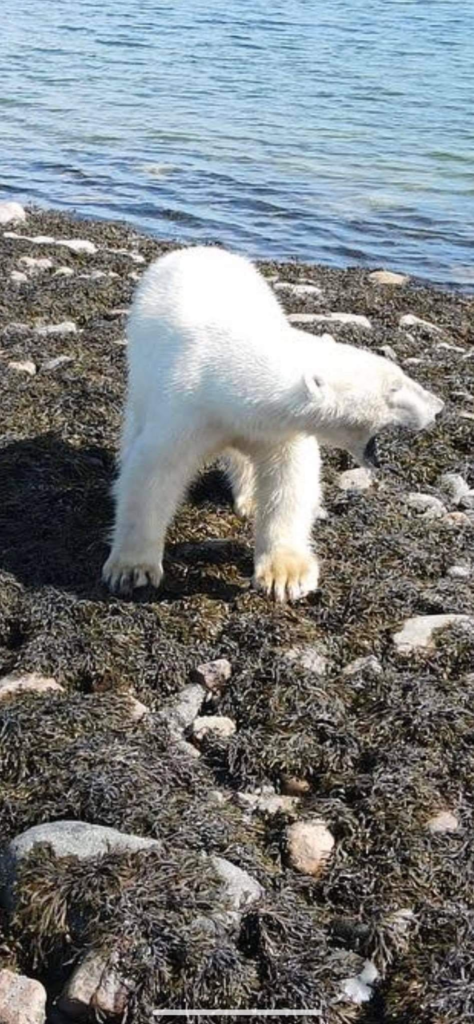
8) Have you witnessed alcoholism being an issue there? What was the story of you getting yelled at by a local?
Jeff: Alcoholism and smuggling illegal liquor is a common problem, there’s no denying it. Gambling is another one that is very common. They kind of go hand-in-hand. Gamble too much–drink to forget–to gamble more, the cycle goes on. I suppose same as everything though. The woman yelling at me was just drunk and angry at something in life. Nothing interesting, that could be a Thursday in Nova Scotia
9) Besides the weather & Northern Lights, polar bears, what is the craziest experience you had there so far?
Jeff: The craziest thing was probably the cold. I probably won’t come even close to dealing with that ever again. I know it would be sexy to tell the story about how I wrestled a polar bear with my bare hands (kidding) but I think getting used to the amazingly low temperatures was the most noteworthy.
10) When I think of “The North” I think of grand lakes, mountains, forests, lots of green forest & nature—but is Nunavut terrain is not like this at all? I’ve read there’s no paved roads anywhere across the territory which is nearly the size of the entirety of Mexico.
Jeff: It’s rock & ice. There are no roads in Nunavut, let alone any that are part of the Trans Canada Highway. It’s a big place, I’d be lying if I told you I saw even remotely to all of the territory–it’s too spread out and remote for roads. The capital city of Iqaluit is accessible by air and by boat. It’s very remote if you want it to be.
11) Given that, I wanted to ask another question because a lot of folks want to unwind from the cities and live “on the land” once again. Do you see that as a possibility in the Territories (including Northwest Territories & Yukon)? Or is it simply too problematical for most people? In other words, could this be a “get off the grid” place or would it simply cause more problems than what you’re solving?
Jeff: A lot of the same housing and infrastructure problems that exist in Southern Canada exist up in the territories. I believe with time things will improve but its hard to find a place. Purely living off of the land is difficult wherever you go, I think it’s obvious to choose a warmer place if you’re going to do that.
12) I don’t mean for this to be condescending, but given the weather, chaos, bears and lack of fertile soil—why do you think people continue to live there? Is there a history behind why the natives have settled there as opposed to more Southward?
Jeff: It’s purely for the paycheque. The cheque is high enough to beat the high cost of imports but also to incentive people to come–well, it worked for me! From what I can tell, its less about taxes, long-term opportunity or stability. It’s an opportunity to go up there, boost your earnings, get the hell out with some extra cash in your account to do what you want to do back home.
As for the native populations, it’s what they know, it’s their home, their culture. When you grow up in that environment it becomes the norm. They enjoy aiming to preserve what they have. That human instinct, I guess. Same as Arabs choosing to live in 50 degree deserts.
12) From an economic & demographic perspective, what do you think the future holds for Nunavut? Ottawa sends a lot of money Northward to keep things going, what if that money dries up? It’s well known that the money is attractive, but it fails to retain people there. What do you think would keep people there? Anything?
Jeff: That’s a tough couple of questions. I should say that most people that go there for money aren’t tied to the community, they are subcontracted from other parts of Canada to work there. In other words, they leave because they never really got an invite in first place to stay for a long period of time. I suppose just like the Middle East it’s a place where people go for work contracts and then they return home. But its hard to find a local company to facilitate large projects, they just don’t have the resources or equipment. The projects that take place from local companies are fewer and focus on maintenance rather than new construction.
It looks like there is a fair amount of money flowing around Nunavut as is, there’s definitely room for updates and expansion within the territory. The bigger issue I see is that they cannot keep up with the demand for housing–even if people wanted to construct big super malls in the North, there’s nowhere to house the workers, or at least to make the project economical.
It’s tough to say like I said, there’s lots of room to build and expand even for the extreme weather, but without making it more liveable there’s not much point. What good is a mall if nobody visits it?
13) Finally, what advice would you give to someone who is thinking about relocating for that paycheque or simply wishing to visit not just the Northern Territories but any country with a harsh climate?
Jeff: Do your research before hand and dress warm haha! You have nothing to prove, mother nature is stronger than you are so know the risks when you enter such an environment and like I said, listen to the locals.
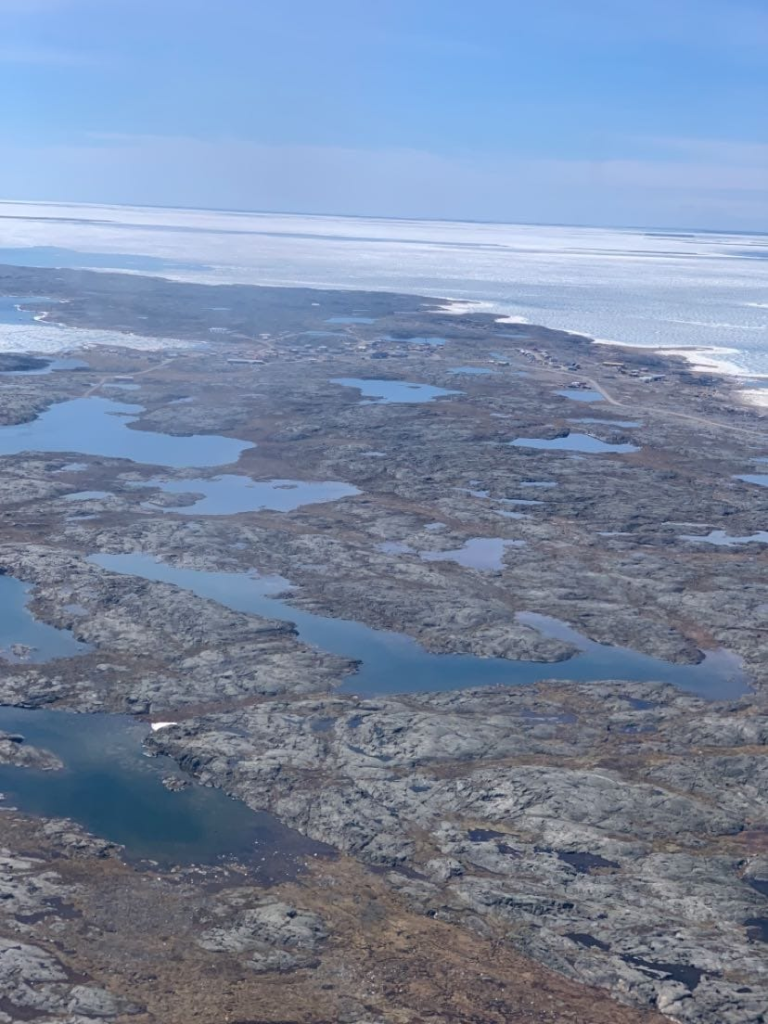
Great, that’s all very interesting stuff. Off the record I’ll find out what those bad intentions are. I’m glad it was you in that cold and not me! I’ve gotten addicted to that Latin American sun. Thank you for taking the time!
Thank you for reading, I hope you enjoyed it—check out my other articles and share my page, I’d really appreciate it!
#StayOnTheBall
